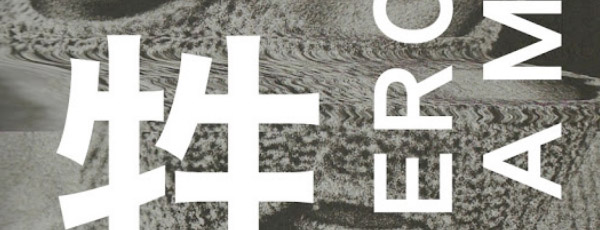
Tracks
Ellery James Roberts: "Kerou’s Lament"
Single (2013)
By Adam Downer | 4 July 2013
I can’t decide if Ellery Roberts actually fancies himself an anarchist, is adopting anarchist kitsch to give his music a cool image, or is just a political idealist the same way a thirteen-year-old who listens to the Dead Kennedys while the other kids listen to One Direction is a political idealist. I also don’t think it really matters, which is not what I would’ve said two years ago. While plenty of internet circa 2011 was devoted to the question of just what the fuck Roberts’ old band, WU LYF, were—a revolution of…some sort? A publicity stunt?—the answer could never have been as satisfying as whatever their music made you think they were. They were just a band, after all. The WU LYF I saw live were clearly three regular dudes and a pretentious-as-fuck lead singer looking worried, or perhaps hoping, that someone would call bullshit.
Still, whatever machinations that brought about their brief, comet-esque rise and flameout worked, somehow. Go Tell Fire to the Mountain (2011) soared on its singularity and the very vagueness of the mythology underneath it. When listening to it, one gets a rush akin to being in the middle of a giant political rally where the content being talked about is less important than the feeling of mass brotherhood expressed in a wordless, continuous shout—a feeling that was entirely due to Roberts. While the band jammed admirably enough, WU LYF weren’t particularly special without the eighteen-beers-deep Boss disciple going “OOH-BLUG-A-BAA-CHEE-CHAH / LOVE YOU FOREVER!” On “Kerou’s Lament,” Roberts returns with a big, sloppy anthem peppered with general protest rhetoric and a vocal delivery that’s as OOH-BLUG-A-BAA as ever. And wouldn’t you know it? I missed the guy.
Roberts’ voice has a remarkable talent for dismantling cynicism, if only for a moment. WU LYF’s moment was so intense because they conjured the sentimental surge of something vital and important. They flamed out as quickly as they did because they offered no substance, leaving most of the world to sheepishly put them away like the memory of a drunk, but utterly sincere karaoke performance—though it mattered tremendously in the moment, we can’t live our lives at that level all the time. But like the best WU LYF tracks, “Kerou’s Lament” has no time for sheepishness. It’s massive and stupid and wonderful, Roberts howling, “To the powers of old, to the powers that be: / You fucked up this world, but you won’t fuck with me!” with a passion that’s practically throwing its arm around your shoulder figuring you’re singing along anyway. Some may brush away the emotion in his voice as an affect, but a) it’s not, he really talks like that, and b) why would you want to? Roberts’s rhetoric and style are intentionally blustery, but it’s easy enough to pick up what he’s going for intuitively, and the spirit he’s expressing is powerful enough—again, if only for a moment.
Perhaps the value in this whole strong heart/light substance dichotomy is best illustrated in the closing minute or so of “Kerou’s Lament,” where Roberts takes a sample of someone spouting off some anarchic idealist such-and-such and works it into a cloudy, melodic outro using only the musicality of the speakers’ voice and reverb-heavy keyboard. The section sounds like a gentle lullaby and stands as a perfect counterpoint to the raging storm Roberts just went through belting. Naturally, at the time of writing this, the top Youtube comment is that anarchist such-and-such typed out in UNIRONIC CAPS LOCK, which look pretty silly, and rightfully so. But there’s also something in this section that sticks. The origin of a beautiful idea, even if it’s not an entirely plausible one? The illusion of earnestness? Or perhaps all earnestness just naturally reads as illusion in 2013? I’m sure the time is coming when this song will fade from my consciousness, but, as with the best off Go Tell Fire to the Mountain, it’s tough to deny the stirring gorgeousness of the song, and Roberts, sincerely or otherwise, is as dazzlingly charming as ever. Sometimes, being dazzled is a worthy end in itself.





